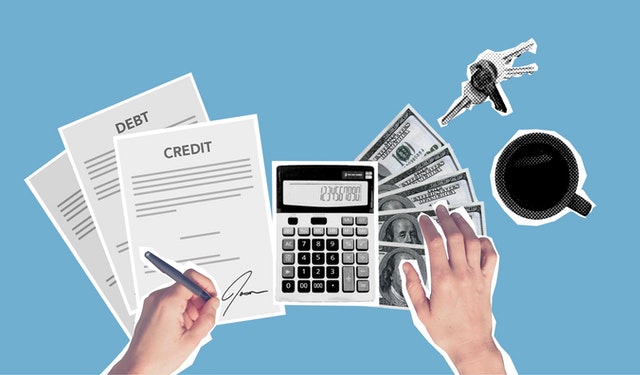Getting out of debt is a long and complex process. Before you consider applying for a consolidation loan, start with a debt repayment strategy. There are many popular ways to pay off debt, but we recommend that you compare the snowball against avalanche strategies because they are designed to use your natural motivations to stop the debt cycle as quickly as possible and will not cause your credit score to drop like a consolidation loan would.
You may have exhausted these options and applied for a loan to streamline your repayment process. Unfortunately, although debt consolidation loans are a popular product for many lenders, they are not always easy to obtain. If you’ve been turned down, you’re probably wondering what went wrong and how you can improve your odds the next time around.
Here are the top four reasons why you might be turned down for a debt consolidation loan.
You have a bad credit score or insufficient credit history
Debt consolidation companies will want to see a history of good credit practices on your credit report before you approve a loan. It may seem unfair since you are looking for a loan to get yourself out of the mistakes of the past, but lenders should know that whatever they lend, you will be paid back.
If you have late payments on your credit report, see if there is a way to get them removed. Most late payments will go away within a few years, so if you can wait to apply, you may be more likely to debt consolidation loan approval.
You may also be denied a debt consolidation loan if you don’t have a great deal of credit history because lenders cannot derive a long enough payment history to make sure you won’t be at risk. Plus, if you’re new to credit and already have enough trouble that you need to consolidate debt, it could be a red flag that could lead to denial.
You did not have enough guarantees
Debt consolidation lenders will often require some type of collateral to secure the loan if you stop making payments. The amount and type of collateral required will vary for each financial institution, so it is important to ask what collateral you will need to offer before submitting your request. If you’ve already been turned down, contact your potential lender to ask if there is a way to provide something else as collateral of a higher value in exchange for the loan. You may need to temporarily surrender your car title or add a second position to your home title to get approval. These are substantial assets that you must give up control over, so take the time to weigh the potential consequences (AKA what you could lose) if you are unable to repay your loan.
Your income was not high enough to justify the risk
If you are in debt and don’t earn enough to make ends meet, you could be rejected. Your lender will take into account the amount you ask and the current interest rates you receive and compare them to the amount of money you bring in with each paycheck. If the numbers are too far apart, they might see that you are not able to make your loan payments. If so, try extracting records of other income from side jobs, concert work, child support, or child support, for example.
If you don’t have additional sources of income, start taking steps to increase your income. You can either request a raise from your current employer or start a side business online. Not only will increasing your income give you better financial results the next time you apply for debt consolidation, you may even earn enough that you don’t need debt consolidation at all.
You’ve applied for too many loans or credit cards
If your credit history shows a recent influx of credit card or loan applications, you could be turned down. It may seem counterintuitive since you are trying several ways to get rid of your debt, but lenders don’t see it that way. Instead, several recent inquiries show that not only are you in dire straits, but no other lender seems to think it’s a good idea to let you borrow from them.
To prevent this from happening, work with lenders you already have a relationship with as they might be more willing to add another line of credit or loan to your accounts. If they don’t seem interested, you can go through payday or hard money lenders since they don’t pull your credit report, but keep in mind that there is a trade-off to not use your credit history. Payday lenders are not regulated by any governing body, so they are not subject to any rules regarding what they can charge on a loan. Their interest rates and repayment terms are predatory and can even get you into even more debt.
The bottom line
If you have been turned down for a debt consolidation loan, it is because your application was considered too risky due to one of the above factors. Talk to your lender about your options and see if there is another way to provide proof that you will repay the loan. If that doesn’t work, consider speaking with your current creditors to see if there are any repayment plans you can use to help you get out of debt faster.

